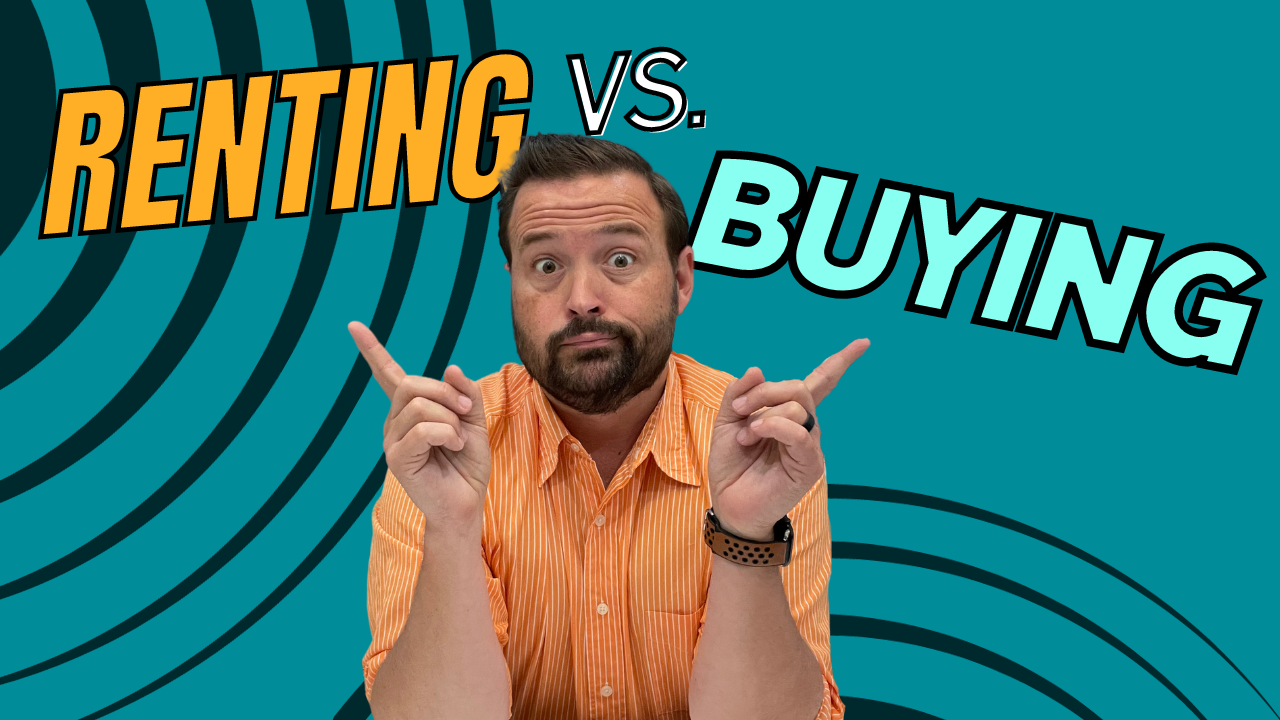Renting vs. Buying in 2023: Making the Right Choice for Your Home
Are you at a crossroads, trying to decide whether to rent or buy a home in 2023? With mortgage interest rates hovering around 8% and home prices on the rise, it's a decision that demands careful consideration. In this comprehensive blog post, we'll break down the pros and cons of renting and buying, providing valuable insights to help you make an informed choice.
The Great Debate: Renting vs. Buying

The current real estate landscape presents a unique challenge. On one side, you'll hear arguments that it's unwise to buy a house in today's market. On the other, there's the perspective that renting equates to throwing money away. It may seem like a no-win situation, but we're here to help you navigate the complexities.
Exploring the Benefits of Renting
Renting a home has its advantages, and it's essential to weigh them against the cons. Here's a snapshot of why renting might be a suitable option:
1. Low Startup Costs: When you rent, you typically don't need a down payment or closing costs. A security deposit and first month's rent are often sufficient, providing financial flexibility.
2. Maintenance-Free Living: Renters don't have to worry about saving for home maintenance or repairs. If something breaks, your landlord takes care of it, freeing up your finances for other goals.
3. Flexibility: Renting offers flexibility in terms of location and duration. If you're dealing with a noisy neighbor or unforeseen job changes, renting allows you to move relatively quickly.
The current rental market also has some good news. Nationwide, rental listings have increased, leading to more affordable prices in some areas. Factors like the shift from short-term to long-term rentals due to Airbnb's impact and new municipal restrictions have influenced rental pricing.
Delving into Homeownership
On the flip side, homeownership comes with its own set of benefits. Here's a look at why buying might be a long-term goal for you:
1. Equity Building: Homeownership allows you to build equity in your property. As you pay down your mortgage, you're investing in your future.
2. Tax Benefits: Homeowners can take advantage of various tax benefits not available to renters.
3. Stability: Owning a home provides stability, and you have complete control over your living space.
While it's true that home values have increased significantly in recent years, it's essential to acknowledge that these rapid equity gains are likely over. Yet, there's still a competitive environment for buyers in today's market. High mortgage rates and a competitive buyer landscape may make it challenging to find a good deal, but patience can pay off.
Planning for Long-Term Homeownership
In the long term, home ownership remains a valuable investment. Despite the current market dynamics, real estate experts anticipate steady increases in home values over the next three to five years. While these increases might not be as dramatic as in the past, they still present growth opportunities.
As you plan for long-term homeownership, consider finding a home that meets your needs for at least a decade. Over this time, you can build substantial equity, positioning yourself for a profitable sale when the time is right.
Factors to Consider
When deciding between renting and buying, three key factors should guide your decision:
1. Financial Situation: Assess your credit score, emergency fund, savings, and ability to handle monthly mortgage payments.
2. Local Market Knowledge: Understand the housing value trends in your desired area. Are you in a buyer's or seller's market?
3. Risk Tolerance: Evaluate your comfort level with potential property value fluctuations and any upcoming significant expenses or life changes.
By carefully considering each of these factors, you'll be better equipped to make the right choice for your unique circumstances.
Choosing the Right Path
As you evaluate your financial situation, local market knowledge, and risk tolerance, you may find that you're stronger in two of these areas than in the third. Depending on your strengths and weaknesses, here's what we recommend:
-
Strong Financial Situation & Low Risk Tolerance: If you're financially secure but risk-averse, consider continuing to build your wealth and saving for a larger down payment to reduce your risk.
-
Strong Financial Situation & Lack of Local Market Knowledge: If you're financially stable but unsure about the local market, rent for a short period to learn more about your desired area before committing to a long-term investment.
-
Local Market Expertise & High Risk Tolerance: If you have a deep understanding of your local market and are comfortable with risk, work on improving your financial situation by building an emergency fund and savings.
Your Real Estate Journey
Our goal is to help you succeed in your real estate journey. We understand that the decision to rent or buy a home is a significant one, and we're here to provide valuable insights to guide you. If you found this blog post helpful, please give it a thumbs up, subscribe for more informative content, and share it with anyone facing the rent vs. buy dilemma. Your support helps our platform grow and offer more guidance to individuals like you who are navigating the complex world of real estate.





